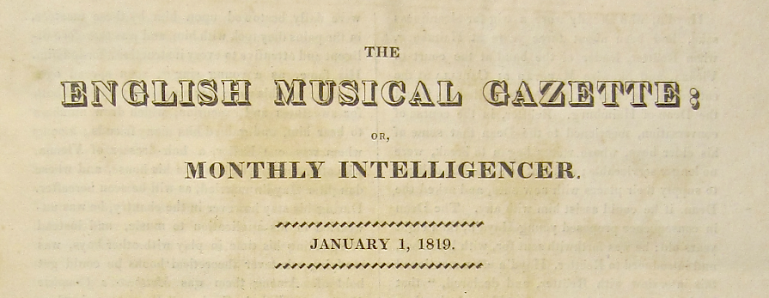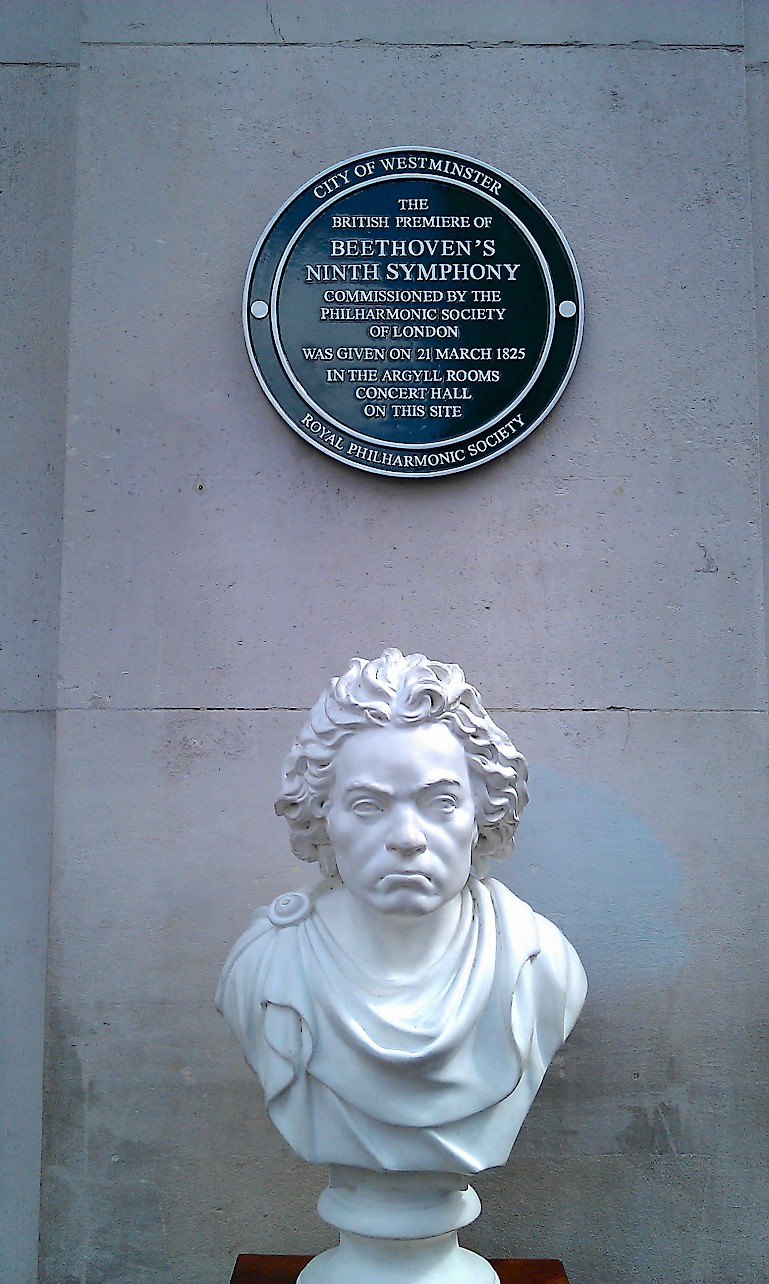Beethoven in Britain
'Beethoven in Britain, 1819: More than Marketing?', Newland Lecture, an invited presentation for the University of Hull, 24 March 2020 [CANCELLED], rescheduled for 17 November 2020; revised from a paper given at the Eighth International New Beethoven Research Conference, Boston, MA, 30-31 October 2019
In June 1819 a four-voice Latin motet by Ludwig van Beethoven appeared in the supplement to a new London magazine, the English Musical Gazette.  By all appearances genuine, reprinted at least twice in 19th-century music collections, the piece has, however, never been mentioned in any official worklist, bibliography, or narrative about the composer in the last 200 years. Is it really by Beethoven? What significance could it hold amid his other compositional activity in 1819? Why has it been missed or ignored in international music scholarship?
By all appearances genuine, reprinted at least twice in 19th-century music collections, the piece has, however, never been mentioned in any official worklist, bibliography, or narrative about the composer in the last 200 years. Is it really by Beethoven? What significance could it hold amid his other compositional activity in 1819? Why has it been missed or ignored in international music scholarship?
In the 250th anniversary year of Beethoven's birth, my lecture looks closely at this newly recovered piece and its promoters - the publishing arm of the Philharmonic Society of London, the Harmonic Institution, based at the Argyll Rooms in Regent Street. As a pointer to the unsuspected independence, creativity and output of early 19th-century UK composers, Beethoven's piece opens up a new context for studying musical culture in Britain, including the professionalizing of composition and the projecting of Beethoven himself as model. The episode also raises questions about the early 19th-century British media, career negotiation within the cultural sector, and the ethics of musical adaptation.

 Langley
Langley